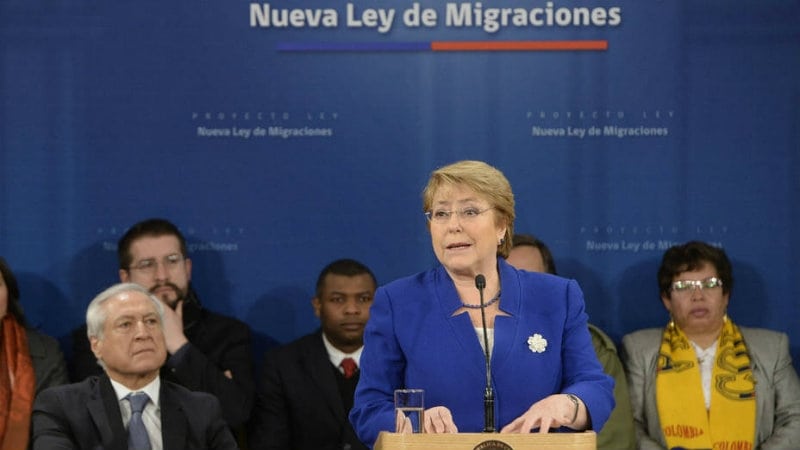
Isabel Cocker/The Santiago Times Staff
SANTIAGO – This Monday, Chile’s President Michelle Bachelet signed a proposal to change the immigration law, proclaiming that “Chile is a good place to live, work or study. Because of this, people will continue to arrive.”
Bachelet cited a need for “transparency” so that the country can better prepare itself for the large numbers of immigrants who have recently been arriving to make a new life in the South American country.
Chillán cheers as Bachelet signs decree to create new Chilean region
El Universal underlined that immigration officials believe there are up to 20 000 undocumented immigrants in Chile, something which is stagnating the economy and impacting the employment rate.
For the Chilean head of state, unclear immigration law is a principle cause of the current situation. She highlighted that “we want to get away from the irregular system of immigration, because it is an open door to all sorts of abuse – by foreigners and Chileans alike.”
The new proposal has four sections:
1) The establishment of a system of principles, rights and tasks with which the immigrant must comply.
2) The regulation of arrivals and departures, and an updated proposal of immigration categories.
3) A description of the administrative process of sanctions.
4) The proposal of a national system of immigration policy, under the Interior Minister.
The major changes which will affect foreign immigrants include changes to the duration of the residency period, a clarification of the periods between temporary status, permanent residency and full citizenship, and the removal of parents from the category of “dependents” for holders of temporary visas.
Also of concern to some immigrants is the proposed change to visa application deadlines. Currently, the visa holder can apply for a new document up until the final day of their old visa, and has 60 days in which they may stay in the country whilst their application is being processed.
However, if this law is passed, foreigners will have to apply for an extension 20 days prior to the expiry of their current permission, and will have to leave the country before the expiry date of their former visa.
The law also proposes a national database of immigrants which, according to La Tercera, will be led by the Undersecretary of the Interior. This would be a completely centralized register, comprising of details such as criminal records and immigration status, simplifying access to information which is currently held across various other departments.



